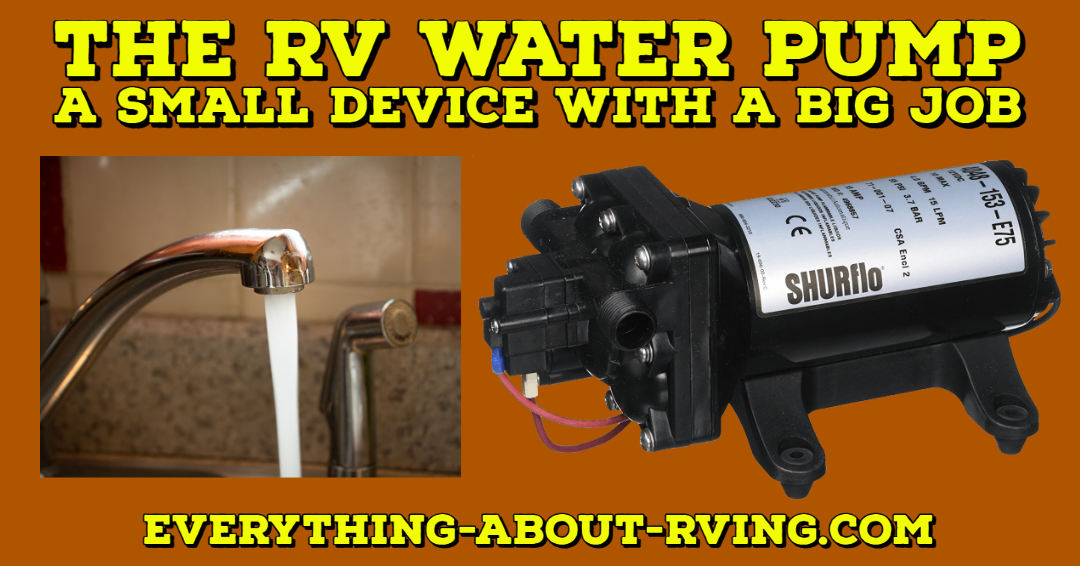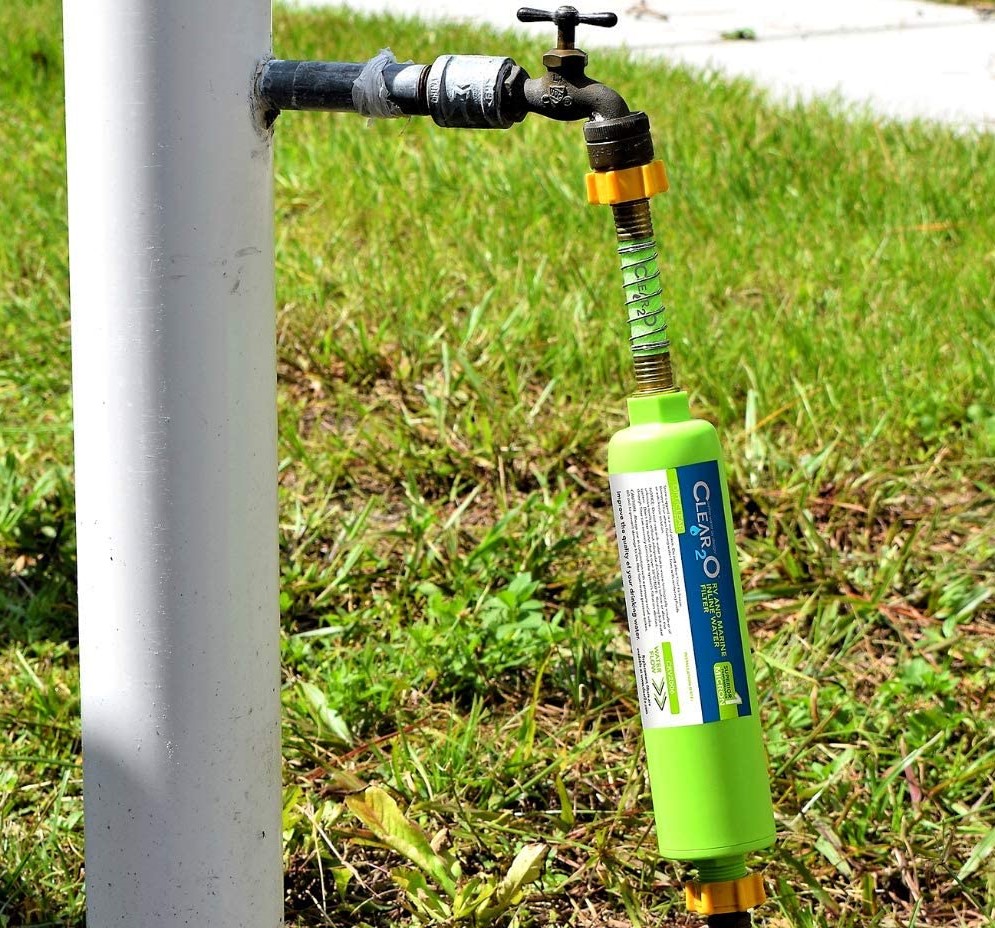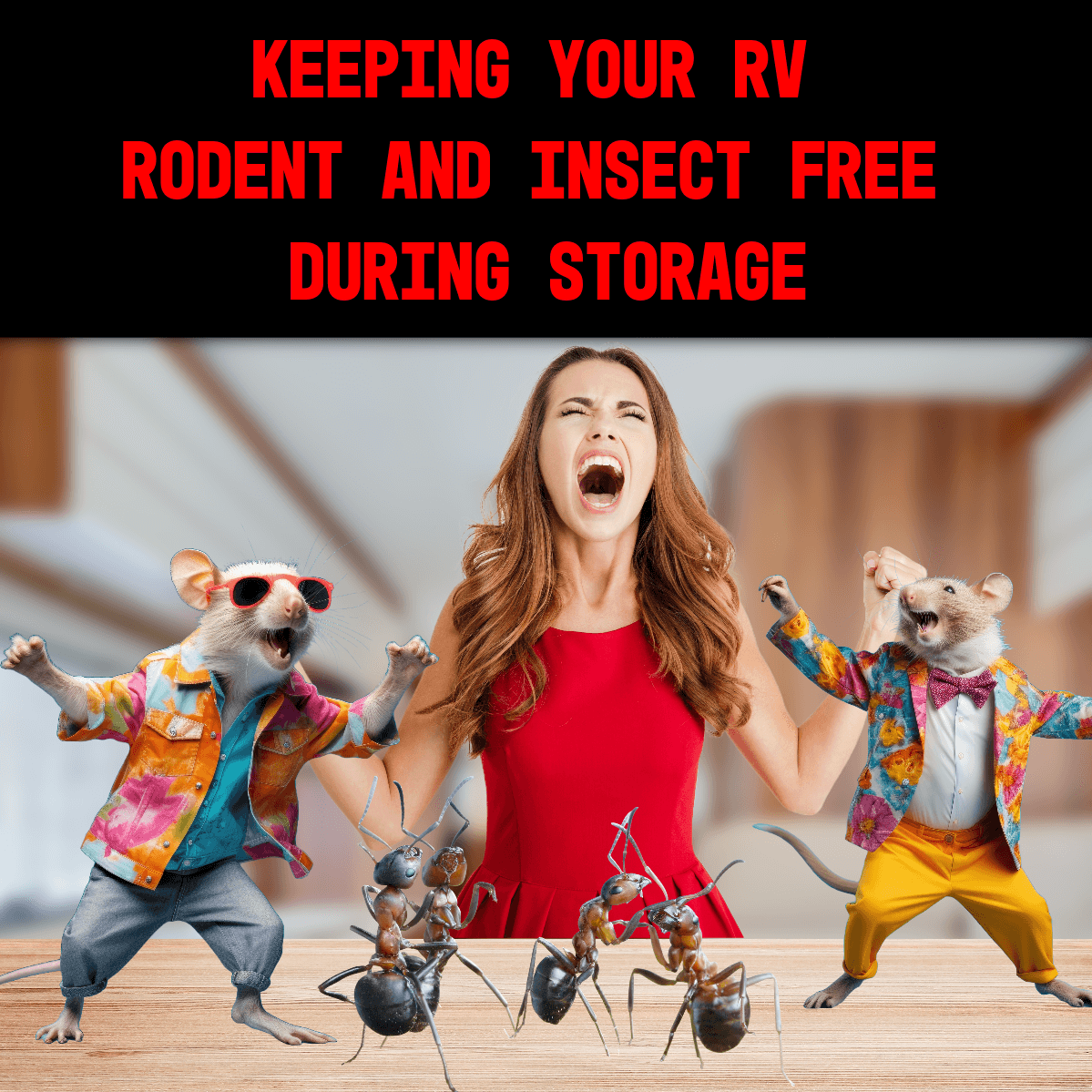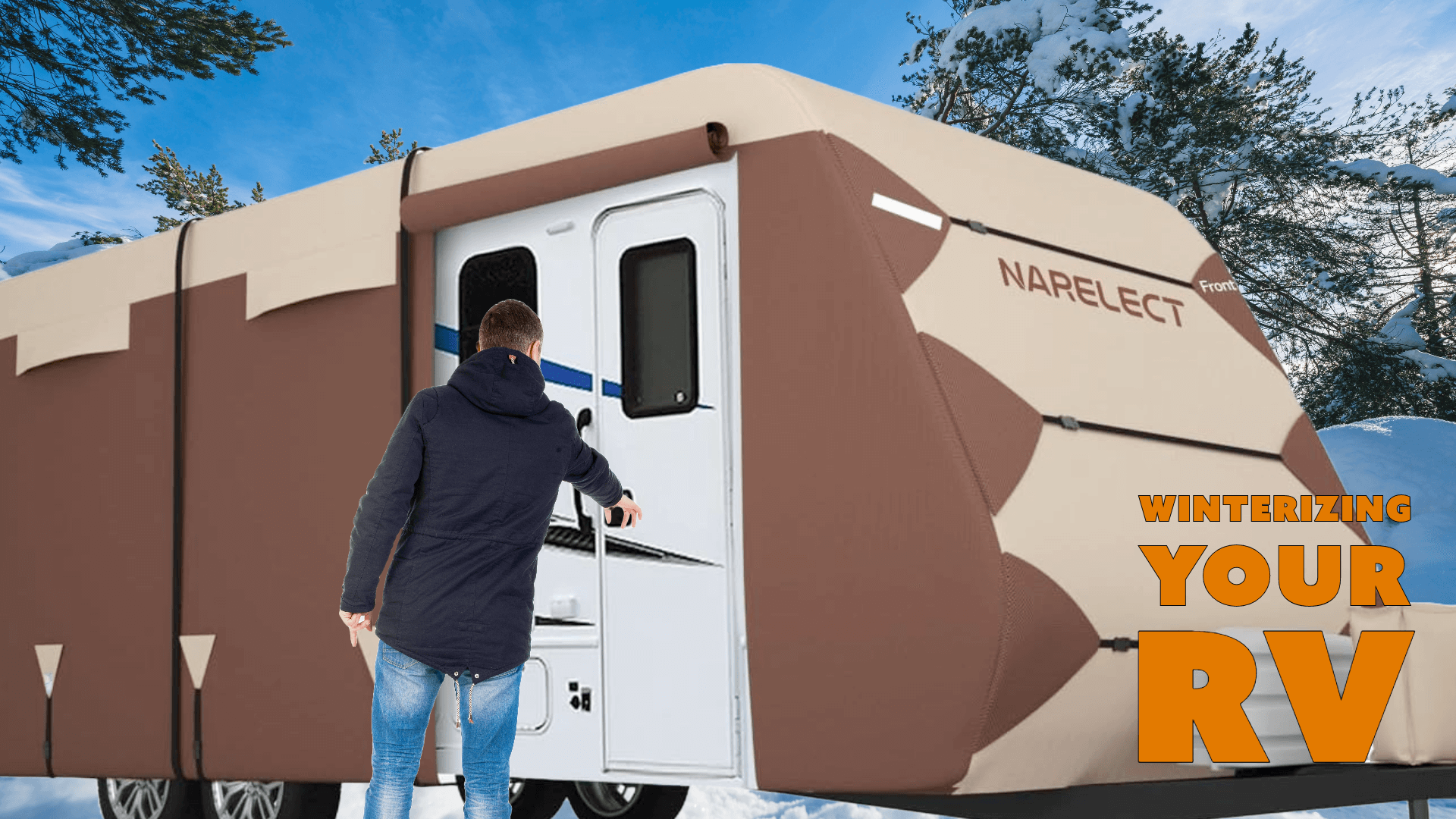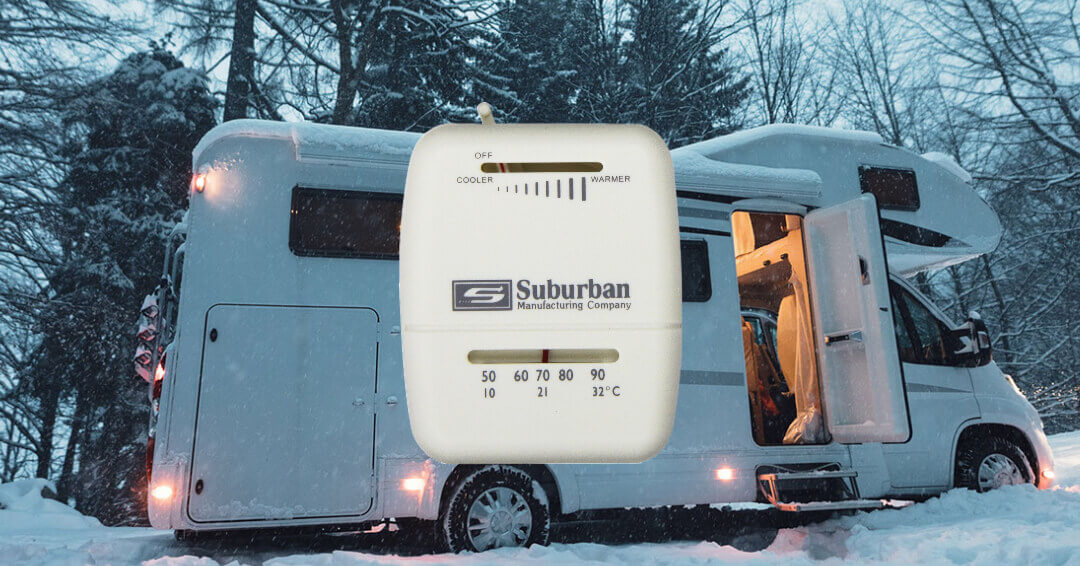- Home Page
- RVing Tips & Tricks
- Rv Water Pump
The RV Water Pump
A Small Device With a Big Job
An RV water pump is a lot like a baseball umpire
By Keith Bernard
RV water pumps are a lot like baseball umpires. When they're doing their job well, you don't even notice them. But when they aren't functioning the way you expect, then they can become a real problem.
That's because they perform such an essential function in the delivery of clean, fresh water in your RV – not just for drinking but for showering, dishwashing, even flushing the toilets. The job of the water pump is elegantly simple – yet so crucial. It is used to move water from the freshwater storage tank to toilets, sinks, showers, any place where water is required. It keeps the water pumping thru the RV plumbing system, so you have H2O when you need it while camping.
And depending on how big your tank is, there can be varying amounts of water to move around. The amount of water a freshwater tank can hold depends on the tank's size, which is dependent on the size of the RV. Here are some basic figures from Camper Report:
An average freshwater tank holds 20-100 gallons of freshwater. A class A RV will hold the most water, averaging between 75-100 gallons. Class C RVs will hold 35-60 gallons, Class Bs will hold around 20-40, and fifth-wheel trailers hold about 60-80 gallons. Smaller trailers hold 20-40 gallons.
(Pictured Above: Clear2O RV and Marine Inline Water Filter)
Before getting into how water pumps work and what to look for in one of these devices, you should be aware of the times that you don't need a pump. A water pump is designed to pump water out of your RV's freshwater holding tank (generally located in the base of the motorhome or trailer) only when you are not hooked up to city water (the term for getting water at a campground or other site through the provided hook-ups, or spigots.
You should not run the RV's freshwater pump when hooked up to city water. The city water system should provide sufficient water – and water pressure - for your RV's freshwater system. Although pretty much any RV with a sink faucet or shower in it also has a freshwater holding tank, city water bypasses the freshwater holding tank completely.
So, when does your water pump get to take center stage? Basically, you will need to rely on this device when you are boondocking (dry camping) or are situated anywhere where there are no water hook-ups. The RV water pump is the heart of a camper and allows RV enthusiasts to go off the grid and experience the great outdoors where water is scarce or simply unavailable.
The function of the water pump is essentially two-fold:
- The first job of RV water pumps is to provide pressured water from your rig tank. A pump allows you to get water from the kitchen and bathroom faucets and keeps the shower and toilet flowing. Put another way, the RV water pump takes the water from your tank up into your rig's piping system. It also increases the flow of the water and stabilizes its pressure.
- The second job of the RV water pump is to provide a certain amount of water per minute. Trailers or campers may use pumps that produce 3.5 gallons of water per minute; larger motorhomes may use pumps that provide 5.3 or greater gallons per minute. The difference in size is the difference in the size of the RV.
12V water pump RV models are the standard operating motors for RV use (an RV water pump works off of your 12V battery). When you open a tap or flush the toilet and are not connected to city water, the pump detects the pressure drop and will turn on to maintain the pressure. (You'll need to switch power to the pump on and have water in your freshwater tank.)
In an RV, the water pump is typically a diaphragm pump with 3-5 chambers. The diaphragm is driven by an electric motor to create suction and has a valve on either side of the chamber. The diaphragm expands, creating more volume and lower pressure. The valve at the chamber's outlet closes, and water then flows into the chamber when the valve at the inlet opens. The diaphragm then contracts, creating less volume and more pressure; the valve at the inlet closes, and the outlet opens, forcing the water out of the chamber. 12V electric water pumps tend to be low pressure and low flow; thus, a diaphragm pump is well suited to this type of use.
RV water pumps work on an on-demand basis. When the water pressure drops below the pump's preset limit, it will turn on to compensate. Due to an RV water pump design, they are designed for intermittent use and will not run continuously even when the tap is open for an extended period of time.
A word of caution: never run the pump dry (that is, without liquid). This can result in severe damage to the unit depending on the type of water pump attached to the vehicle. Of course, RV water pumps will run dry while priming the pump. In this case, the pump should only be dry for a few seconds while water is brought from the tank to the pump - only a short distance.
But why do you need to know so much about water pumps? You turn them on, and they do their jobs, correct? For the most part, that's true: a quality water pump that is properly maintained can last up to 10 years or more. Yet, there are telltale signs that a water pump may be nearing the end of its life, and you may need to replace it. That's why it's recommended to test your water pump before each trip – in fact, make it a high priority on your pre-journey checklist.
Here are just a few of the many indications that your RV's water pump may be going out.
- Excessive Noise: Water pumps can be noisy in general. However, if it makes excessive or unusual noise, the pump may be on its last legs. Motor failure is the least common cause of pump failure, but the pump section itself can be a real cause for concern.
- Leaks: Your water pump may need to be replaced if it begins to leak. However, you will want to first determine where any leaking water is actually coming from, as you may have a leaking issue from somewhere other than the water pump.
- It Won't Turn On: While your first reaction when your water pump won't turn on is to replace it, the pump may not always be the issue. Check your 12V fuse panel first, then move to the pump and look for the possible use of an inline fuse. If there is no trouble there, check the electrical connections on the pump and then move to the pump switch, verifying it is still operational.
Besides replacing a faulty pump, you may decide to upgrade to a higher performance model that provides more water volume to your faucets. Regardless of the reason, if you are going to replace your current pump, there are four main things to look for:
1. Check your RV manual for water specifications. If you don't have the manual, you may want to call a dealer or service center that is proficient in your particular brand of RV.
2. How many gallons of water per minute is optimal for your recreational vehicle?
3. What water pressure is recommended for your type of recreation vehicle?
4. What are the dimensions of your current water pump? (Many people have upgraded to a more powerful model, only to discover that it didn't fit in the allotted space).
The water pump is truly your lifeline when you're camping without hook-ups or even during travel. You need to make sure that yours is in good working order and to recognize the signs of a pump that is on its way out. A little bit of diligence – including an annual inspection by a reputable service provider - can keep the water flowing and the good times rolling.
About The Author
Keith Bernard is the CEO of CLEAR2O®, one of the leading manufacturers of water filtration products for RV's.
Do you have any suggestions or comments on this topic? You can add them to this page by using the comments section located below.
